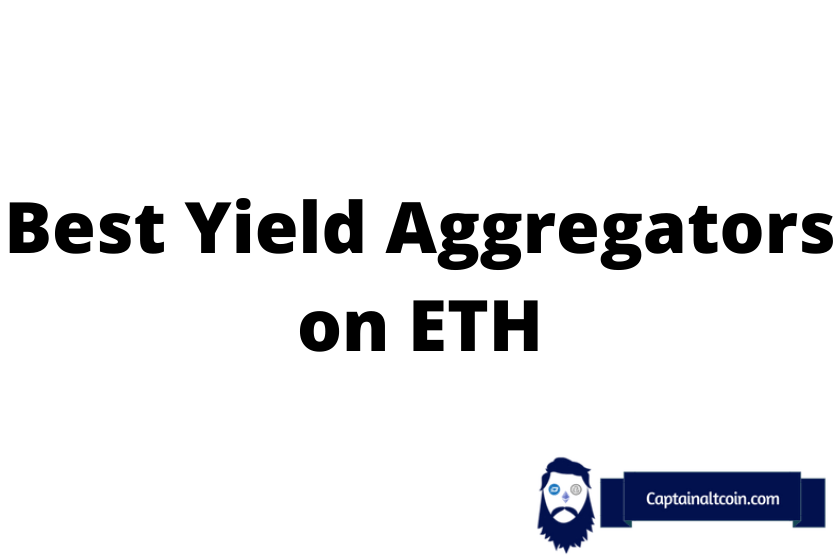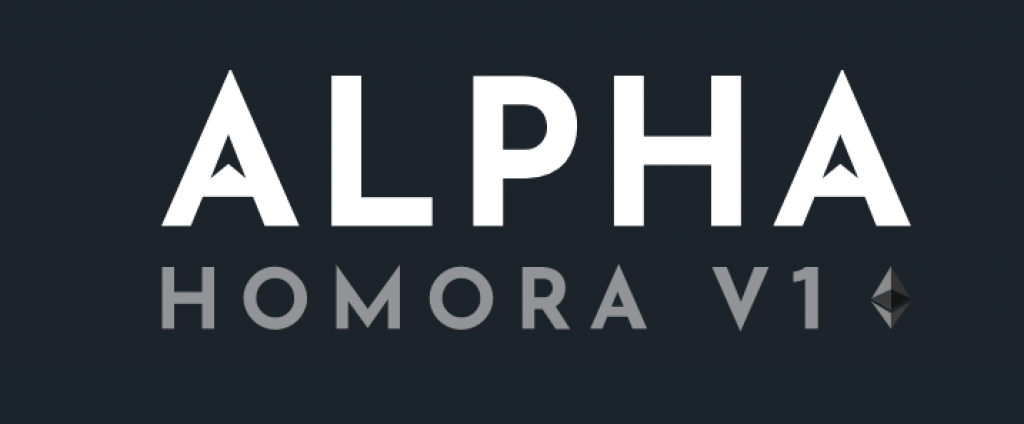
Before we begin exploring Yield Aggregators, we must explore and understand what yield farming is and why we need crypto Yield Aggregators in the first place. Yield Farming is the act of looking to earn the best yield from DeFi platforms that are looking to improve their liquidity in the “liquidity pools” and, in the process, moving your crypto assets from one DeFi platform to another. All this happens via smart contracts on Ethereum Networks.
What you'll learn 👉
What are yield aggregators?
The returns or the yield a user is seeking varies significantly from one platform to another. It can become quite a chore to manually hunt down yield at each platform and whether the offer will result in the best deal over time.
Since the purpose here is to do everything partially or automated via computer programs, Yield Actuators leverages DeFi platforms and the yield they offer to maximize the yield for a user. In finding the best deals, yield actuators also act to simplify and improve the user experience.
Read more about our top DeFi coins to invest in. Also, here is a list of the best NFT projects.
And while we are at it, here is a list of the best Binance Smart Chain coins that are worth looking into.
Harvest Finance
As discussed above, yield farming is an operation that demands 24/7 vigilance in looking after your returns to maximize the yield on your crypto assets. Along with having to shift funds between various DeFi platforms with the highest yield, navigating the best returns with the shortest commitment and the lowest Ethereum network’s gas costs can be frighteningly arduous. But, Harvest, with a simple to follow, user-friendly interface, has become more accessible.
All you need to do is deposit supported tokens and get yield returns in Harvest’s FARM token.
Ironically, the project was developed by an anonymous group of developers that cited Andre Cronje as an influence in developing this yield aggregator.

Yearn
Yearn is one of the original developers of Yield Aggregators. The platform is run and administered by a group of independent programmers and is governed by YFI token holders. The actual developer of the platform was Andre Cronje.
It is an undeniable fact that Yearn has put together a portfolio of the best tools and services for a user trying to make DeFi and yield farming easy-to-use. The tools include:
Vaults: An automated and passive investing tool that farms yield from capital pools.
Yinsure: A tool to invest against smart contract glitches without KYC requirements
Zap: To manage yield-farming manually, this tool allows you to swamp liquidity pools.
Earn: If you wish to lend instead of farm yields, this tool will find the best returns.
Value DeFi
Launched in August 2020, Value DeFi was launched on Ethereum mainnet as a protocol for Yield Farming and aggregation. Yes, the platform became famous due to a $6 million hack, and yes, it has switched to Chainlink for help with outside transactions. Still, it has tools and services, the diversity of which is noticeable and ongoing proof of seeking excellence. Here are those tools:
vSwap: vSwap was previously known as Value Liquid and their central Yield-farming platform. Per the official definition, “vSwap has the ability to launch pools, and swap most tokens with reduced liquidity by ‘borrowing’ from other Dex’s such as Uniswap, SushiSwap, and PancakeSwap.”
vSafe:This is the tool that essentially automates the whole Yield-Farming and yield aggregation. Essentially a user submits their crypto assets in the vSafe and lets the platform take care of yield earning and managing the risk of one’s investments.
vGovernance:The protocol’s governance which was previously done through its VALUE token, will now happen through this tool to earn emissions, profit-sharing, as well as for voting for changes on the platform.
vFarms:This is essentially providing prebuilt Yield-Farm as a service to create any configuration of a farming application.
The platform has also created an instance on the Binance Smart Chain to save its user transaction Gas fees.
APY.Finance
APY Finance has devised many yield-farming strategies to lower the cost of gas in transactions where funds are moved from one liquidity pool to another. One of those strategies is the ability to move pooled funds of multiple users rather than moving the funds singularly. Per their claims, APY aims to save as much as 99% of their clients’ gas costs.

When a user deposits funds into APY, the client is provided with APY tokens in exchange. The dashboard is simple enough for users to view the APY (Annual Percentage Yield) users are generating, the smart contracts that users have exposure to, and the risk factors involved in a user’s position.
A very similar process is followed for liquidity mining operations.
Vesper
Vesper calls itself a “DeFi ecosystem and growth engine for your crypto assets.” Its new product, “Vesper Earn,” which began with great fanfare, allows you to automate your yield farming operations and automate the acquisition of new crypto assets. The term Vesper uses to define this process is “programmable yield.” In short, they have automated the process of automatic investment of your yield into the same crypto asset or a new crypto asset. Or represented as
Vesper Grow == “Deposit Coin X, Earn Coin X”
Vesper Earn == “Deposit Coin X, Earn Coin Y”
Read also:
- 1Inch Exchange review
- Dharma.io review
- Pooltogether review: How does Pooltogether work?
- Aave vs Compound
- Aave price prediction
- UNI price prediction
Alpha Homora
One unique thing about the Alpha Homora yield aggregator is that the aggregator project lets you yield farm in DeFi using leverage. It offers an impressive 3X leverage to let you farm throughout DeFi This recent innovation of Alpha Finance Labs is a diverse ecosystem that contains various stakeholders from yield farmers to bounty hunters to liquidators to ETH lenders (in case your over ambitiousness gets you in trouble).
The main lure for ETH lenders of Alpha Homora is its ibETH tokens that ETH lenders can exchange for their ETH and bear a handsome interest of 10% APY based on borrowing in the market.
Their native token, however, used as a yield token, is called ALPHA.

Idle Finance
Idle finance, which calls itself a DeFi rebalancing protocol, is best known as a yield aggregator platform for those investors who are more risk-averse. Thus keeping the balance of maximizing the profit and minimizing the risk is what it’s aggregator engine called “autopilot” is best at.
It’s list of financial backers has impressive names like The LAO, BlackRock Capital included.
Given its careful and unique risk management strategy, Idle is the answer for many risk-averse investors that shy away from the “Wild West” style investment options on most DeFi platforms. Idle simultaneously provides the security that’s typical of the traditional financial world, with returns typically possible in the DeFi world. As a longtime Ethereum stakeholder Ryan Zurrer put it, “We are excited to support them in their growth path to become a decentralized asset management company that combines diversification with layering a set of yield-generating capital allocation strategies.”
Pickle Finance
Pickle finance calls its liquidity pools Pickle Jars, where you can deposit your crypto assets from DeFi liquidity pools like Uniswap and Aave. Its interface is user-friendly and allows you to auto-harvest local DeFi tokens like Uniswaps $UNI token awarded to Uniswap liquidity providers. You can also automate the process of selling the token given a predetermined threshold.

Although Pickle Finance is a premier yield farming aggregator protocol atop Ethereum, its fortunes were briefly reversed recently when a sophisticated DeFi hack took the protocol for over $20 million Dai tokens.
Robo-Advisor for Yield (RAY)
Robo-Advisor for Yield is a set of Ethereum network smart contracts to take advantage of already existing “money lego” projects on DeFi like bZx, dYdX, and Compound to generate its yields. It also takes advantage of Market Dai’s Multi-Collateral Dai (MCD) system to generate Dai Savings Rate (DSR) for its investors.
The project is well recognized for its insistence on securing investor assets and has become an attractive platform for risk-averse crypto investors.
bEarn Fi
bEarn Fi defines itself as a “cross-chain product in Decentralized Finance (DeFi) that at its core provides yield generation, algorithmic stablecoin, bridge, gaming aggregation, treasury and governance on multi-chain: Binance Smart Chain blockchain (BSC) and Ethereum blockchain.”
The platform simultaneously exists on both Ethereum and Binance Smart chain to save its users “Gas” costs and provides a bridge to allow movement of crypto assets from one chain to another.
It also allows its users to obtain coverage against financial loss through its treasury.
Rari Capital
Rari works both ends of the table when it comes to risky investment and lets its users tailor how much risk they wish to take in a particular deal. Its primary focus, however, is the compounding of wealth for its investors. In that vein, it offers three liquidity pools to invest in, namely, Rari ETH Pool, Rari Stable Pool, and the Rari Yield Pool.
Its governance token is called RGT, which distributes rewards on a pro-rata basis on how much liquidity a user lends to the liquidity pools.
Conclusion – Ethereum Yield Aggregator
In short, the aggressive investment protocols of DeFi yield farming are made easier to manage through yield aggregators along with the reward of savings on “Gas” costs for an average investor who does manual yield farming. Along with that, an ongoing innovation strategy that not only saves money but protects the investor from oncoming changes in market practices and norms.







